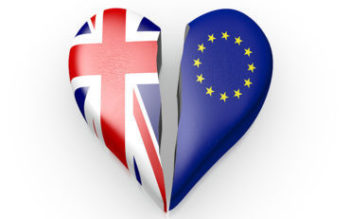Baran Doda

Baran Doda was a Research Fellow at the Grantham Research Institute on Climate Change and the Environment from 2011 until 2019. His research focused on the design of carbon pricing instruments, linkages between emissions trading systems and market-based decarbonization policies particularly for energy and industrial sectors. After leaving the Institute in 2019, Baran joined adelphi, a Berlin-based think tank and public policy consultancy on climate, environment and development. In his current role, he advises governments on climate policy, and supports the work of the International Carbon Action Partnership (ICAP), a network of more than thirty jurisdictions that share experience and know-how on the design and implementation of emissions trading.
Background
Baran completed his formal training in economics in Canada. He holds a PhD and an MA from the University of Toronto, and a BA from Simon Fraser University. He is also an alumnus of the United World College of the Adriatic, Italy. He was previously employed as an economist at the Bank of Canada, taught undergraduate economics in Canada and the UK, and worked as a freelance economics consultant.
Research interests
- Climate change mitigation polices;
- Macroeconomics of climate change;
- Green growth.
Research
Research - 2020
Climate policies do not affect all power producers equally. In this paper, we evaluate the supply-side distributional consequences of emissions... Read more

Research - 2019
We formally study the determinants, magnitude and distribution of efficiency gains generated in multilateral linkages between permit markets. We provide... Read more

This paper develops a novel theoretical tool with which a jurisdiction can evaluate the economic gains it can expect to obtain by linking its emissions trading system (ETS) to one, two or many ETSs at the same time, and proposes a reason why the global market remains a distant dream. Read more

Research - 2018
The level of GDP, its sector composition and the carbon intensity of individual sectors together determine a country’s emissions. To... Read more

The economic case for limiting warming to 1.5°C is unclear, due to manifold uncertainties. However, it cannot be ruled out... Read more

Research - 2017
This paper simulates the distributional consequences of alternative carbon emission reduction policies on power producers and finds that that a carbon tax outperforms all other instruments and does not reduce the profits of carbon-free generators. Read more

We propose a theory of the economic advantage (EA) of regulating carbon emissions by linking two emissions trading systems versus... Read more

Research - 2016
This study of 39 countries shows that business sectors that have low levels of carbon dioxide emissions per output are outpacing the general economy in terms of productivity growth, while increasing the number of jobs and skill levels. Read more

We propose a theory of the economic advantage (EA) of regulating carbon emissions by linking two emissions trading systems versus... Read more

Research - 2015
This article focuses on the relationship between the design of carbon pricing instruments and business cycle fluctuations. Read more

This paper is the first large scale, quantitative study of the impact of corporate carbon management practices on corporate greenhouse gas (GHG) emissions. Using data for 2009 and 2010 from the Carbon Disclosure Project survey, we find little compelling evidence that commonly adopted management practices are reducing emissions. Read more

Research - 2014
Geoengineering can be defined as the technologies that aim to deliberately alter geophysical mechanisms in order to alleviate the impacts... Read more

CO2 emissions and GDP move together over the business cycle. Most climate change researchers would agree with this statement despite the absence of a study that formally analyzes the relationship between emissions and GDP at business cycle frequencies. The paper provides a rigorous empirical analysis of this relationship in a comprehensive cross-country panel by decomposing the emissions and GDP series into their growth and cyclical components using the HP filter. Read more

Research - 2013
Working Paper 116 Abstract This empirical paper focuses on the relationship between changes in GDP and CO2 emissions as a... Read more

Research - 2012
Working Paper 78 Abstract CO2 emissions and GDP are positively correlated over the business cycle. Most climate change researchers would... Read more

Policy
Policy - 2024
This policy brief examines the measures Taiwan can take to safeguard its industries from the potential adverse consequences of its new national carbon fee, and reviews relevant measures adopted in major carbon pricing jurisdictions, including the EU, Singapore and UK. Read more

Policy - 2019
This written evidence was submitted on 12 July 2019 to the joint consultation into ‘The future of carbon pricing’, being carried out by the UK, Scottish and Welsh Governments, and the Department of Agriculture, Environment and Rural Affairs in Northern Ireland. Read more

Policy - 2018
Chapter in the Carbon Market Cooperation in Northeast Asia: Assessing Challenges and Overcoming Barriers compendium report. Published by the Asia... Read more

Policy - 2017
Presentation for Brussels launch event, 05 December 2017 Read more

This report investigates the extent to which current policies and institutional arrangements are fit for purpose for the new decarbonisation phase into which the EU is entering. It summarises the main findings from the Statkraft research programme. Read more

Policy - 2016
This submission explores whether the UK should seek to stay in or leave the EU emissions trading system (EU ETS) as part of Brexit negotiations. It finds that leaving the EU ETS would result in the UK losing access to low-cost emission reduction opportunities that are only available in what is currently the world’s largest carbon market. It also highlights that leaving the EU ETS to link with other existing or planned emissions trading systems could generate significant administrative costs that potentially offset any economic benefits. Read more

Policy - 2014
Responsive cap-and-trade systems and carbon taxes can improve climate change policy by allowing higher greenhouse gas emissions during times of economic expansions and lower emissions during recessions. Read more

Policy - 2011
Cameron Hepburn, Sarah Chapman, Baran Doda, Chris Duffy, Samuel Fankhauser, James Rydge, Kathryn Smith, Luca Taschini and Alessandro Vitelli Read more

Events
News
News - 2017
City AM, 5 December 2017 Read more

Letter published in Nature, 20 April Read more

As the UK prepares for Brexit, its future participation in the European Union Emissions Trading System (EU ETS) has yet... Read more

News - 2016
Luca Taschini and Baran Doda explain how carbon markets could play a crucial role in delivering promises made at the Paris climate conference. Read more

News - 2013
Credits for all photographs: LSESU Energy Society Grantham Research Institute members David Grover and Baran Doda joined students from LSE... Read more
News - 2012
What kind of world do we want? This is the question with which Laurence Smith ends his new book, The New North. I like that ending. It does not prescribe but allows the reader to contemplate the world in 2050 as a malleable object. Read more

Despite the UK’s success in reducing territorial emissions, we are importing significantly more emissions than ever we have shifted the production of many domestically consumed goods abroad, particularly to China. Read more


